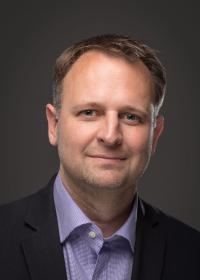
Dr. Paul Drain, Associate Professor of Global Health and Medicine, and Dr. Matthew Thompson (Family Medicine) will lead UW’s arm of the RADx-UP program, “Protecting Our Community: A Pragmatic Randomized Trial of Home-based COVID Testing with American Indian and Latino Communities”.
The study is part of a $1.4 billion National Institutes of Health (NIH) initiative, RADx (Rapid Acceleration of Diagnostics), aimed to expedite the development, implementation and utilization of technologies for COVID-19 testing. RADx-UP focuses on increasing testing access for rural and underserved populations, many of whom experience a higher burned of COVID-19.
Drain and Thompson, together with Dr. Alexandra Adams at Montana State University and other colleagues, will work with long-term partner communities, the Flathead Indian Reservation of the Confederated Salish and Kootenai Tribes in Montana and the Yakima Valley of Washington. Like other remote regions, testing in these regions can be difficult to access and work in industries, such as agriculture, increases exposure risk for many residents.
The Yakima Valley has been hard hit already by SARS-CoV-2, with the highest positivity rate of the entire state (28.3% positive rate in Yakima vs. 6.7% positive rate in WA state).
The UW and MSU teams will dialogue within communities in each region to understand the cultural, social, behavioral, and economic barriers to and supports for COVID-19 testing and tailor education and outreach efforts accordingly. Groups within each community will then either receive a SARS-CoV-2 home self-testing kit through outreach by a trained community health worker, or the standard approach that does not involve a community health worker.
The study aims to prove that tailored information about the testing process combined with personal, community based delivery will improve the acceptability and feasibility of SARS-CoV-2 home self-testing, compared to standard methods.
“Underserved populations in our community continue to have higher rates of COVID, as well as higher mortality rates," says Drain. "We are evaluating the impact of using local community health workers, as well as the latest technologies in COVID testing, to reduce the disparities within our local underserved communities. While the project will help reduce transmission and save lives, it also serves as an example of utilizing our knowledge and experience from global health work to improve the health of our local communities.”
The experiential and statistical data gathered from the design phase through the delivery and results phases will help to inform appropriate and effective strategies for providing essential testing services to other these and other remote and vulnerable communities, and ultimately reduce the disproportionate burden of COVID-19.
Read the original story on the UW Dept. of Medicine website.